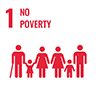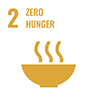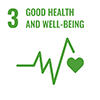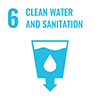Our goal for healthier lives
We understand the importance of a world that recognises and protects the most vulnerable and acknowledges the importance of a healthy mind as well as a healthy body. Our ethos is one of equity and helping researchers move beyond the restrictions of traditional subject disciplines.
We aim to support the work and respond to the needs of researchers, practitioners, policy-makers, service users and their families and carers by bridging the gap that can exist between research and practice and different disciplines to achieve good physical and mental health. Focusing on the social and economic factors that contribute to good health (including no poverty or hunger, clean air, water and sanitation, shelter, universal healthcare and the reduction of health inequalities), we aim to help research influence real world change in people’s health and wellbeing.
Martin Whiteford, Publishing development manager, Healthier lives.
Our goals: Fairer society | Healthier lives | Responsible management | Quality education for all | Sustainable structures and infrastructures
If you're an author, researcher, or someone who cares as much as we do, we would love to work with you, and help your research to bring about healthier lives for all. Get in touch.
Our goal to achieve healthier lives
We champion research that promotes more equitable access to health interventions and health systems, and thereby influences real world change in people’s health and well-being.

Health Citizenship: is participation always effective?
Health citizenship has been criticised for not paying enough attention to questions about power, rights, responsibilities and representation. These tensions, therefore, invite further discussion and debate.

Healthier lives open access content
Explore freely available research to read, download and share that promotes more equitable access to health interventions and health systems, and thereby influences real world change in people's health and well-being.
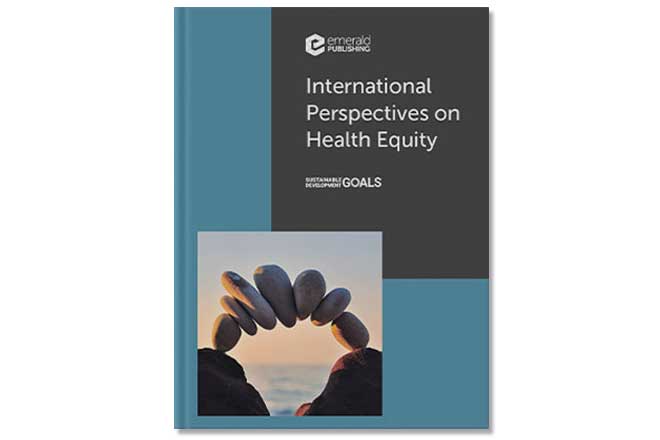
Introducing International Perspectives on Health Equity
Aligned to UN SDG 3, good health and well-being, this fully open access journal will advance knowledge and understanding to help achieve global health equity. Co-edited by Dr Rebecca Schiff, University of Northern British Columbia, Canada and Dr Shaouli Shahid, Curtin University, Australia, research is welcomed that engages, advances, challenges and reframes debates about healthy equity.
Calls for papers
Browse the latest calls for papers in the area of healthier lives.
Opinion & blogs
We welcome contributions from academics, policymakers and professionals about key issues in their area of work. If you have a blog you would like to share, let us know.
News & press
Below we have a collection of news articles centred around aspects of healthier lives.
Other resources
Browse our other offerings below.

Case studies
Global teaching materials to engage and inspire. Students can test their assumptions and decision-making skills about real world problems.

Content alerts
Stay connected to the latest research, delivered directly to your inbox.

ScienceOpen Collection
We've partnered with ScienceOpen to create a healthier lives collection that will be updated regularly to reflect our latest mission-related content.
Your publishing development team

Dr Martin Whiteford
I’m the Publishing Development Manager for Healthier Lives and actively support Emerald’s commitment to SDG-aligned research and learning as it pertains to improving health and wellbeing. I also support academics, pracademics and practitioners to develop and deliver research that has a real-world impact. Further to this, I am the acting Publisher for International Perspectives on Health Equity, an interdisciplinary open access journal focused on new, innovative research that contributes to understanding work towards achieving global health equity.

Dr Dianne Wepa
Associate Professor Dr Dianne Wepa is the Head of Discipline, Social Work at Charles Darwin University, Australia and an Indigenous Māori woman from New Zealand. Dianne’s PhD focused on how Māori engaged with healthcare services. She has published journal articles, textbooks and provided keynote presentations on Cultural Safety, Suicide Prevention and Clinical Supervision. Dianne is an Accredited Mental Health Social Worker and holds several senior academic positions with the University of South Australia, University of Bradford, UK and Auckland University of Technology, NZ. Dianne's research in 2024 includes: Aboriginal mens’ use of emergency departments in the Northern Territory, digital technology to address rural and remoteness during disasters and, Māori patients’ experiences of hand therapy services. Dianne has served on the Editorial Board for the International Journal of Education, Culture and Society (IJECS) and is guest editing a special issue of International Perspectives on Health Equity on the theme of health citizenship in 2024. Dianne supervises PhD and Master’s degree students in Australia, UK and New Zealand and will be publishing her 3rd edition of Cultural Safety in Aotearoa New Zealand in September 2024.

